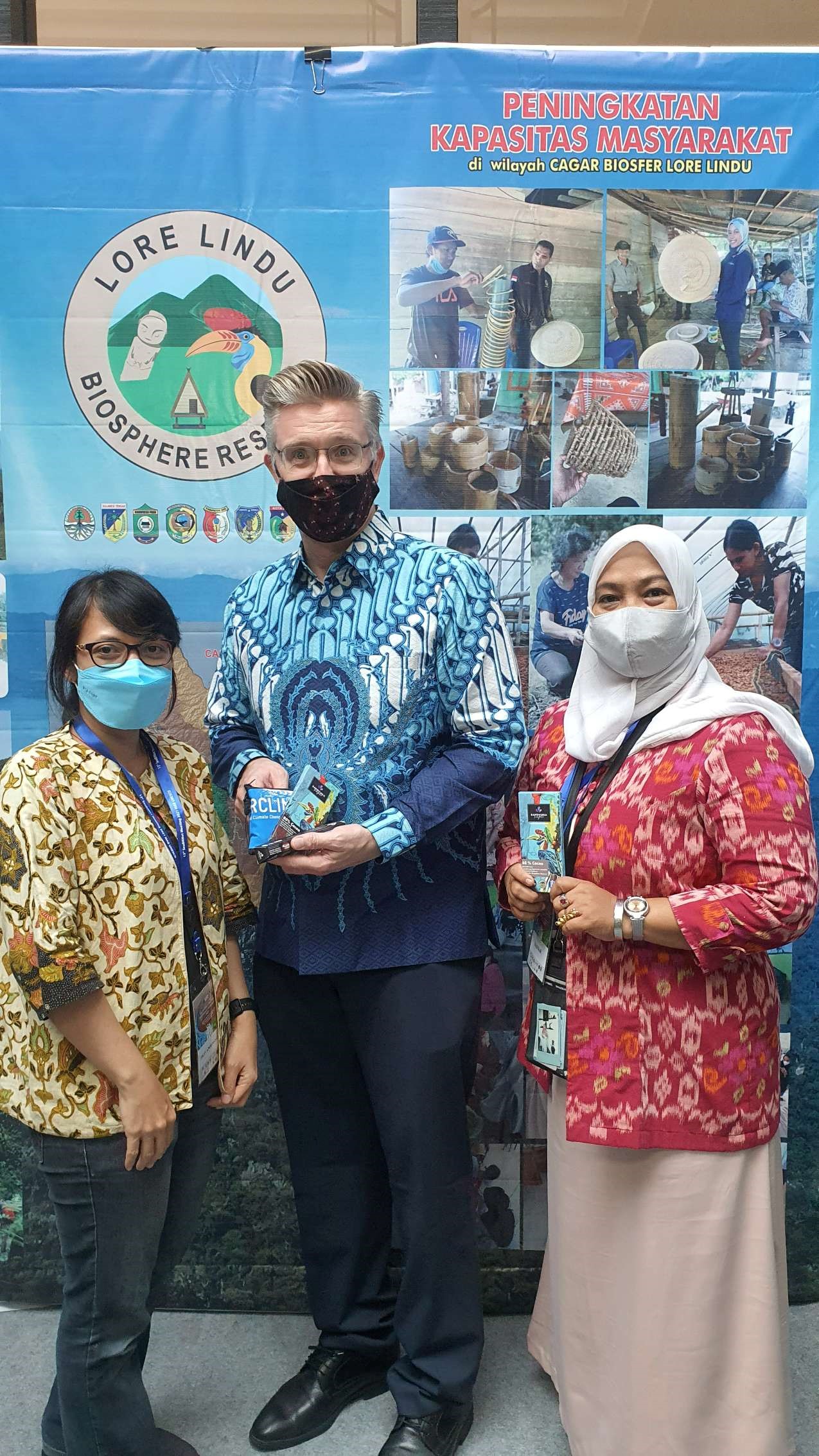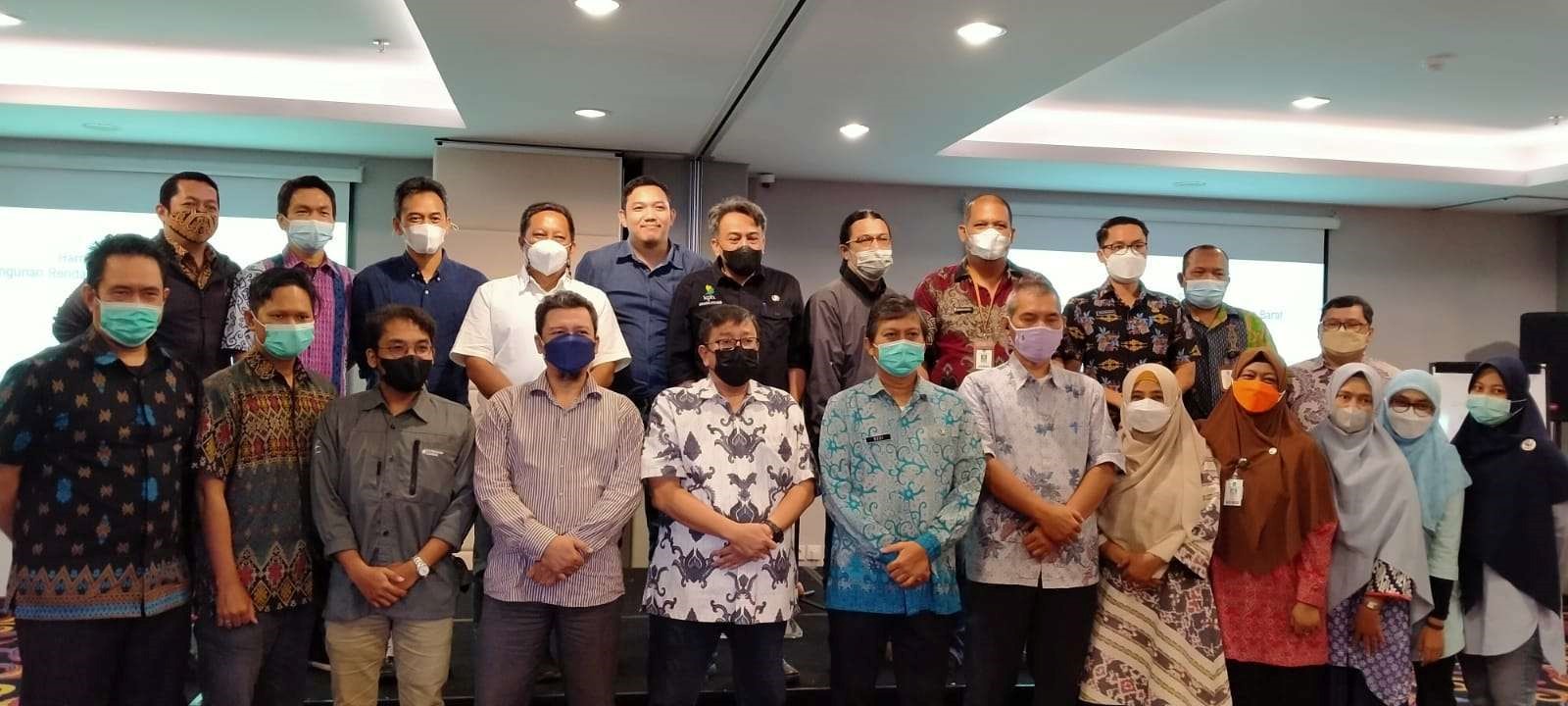FORCLIME
Forests and Climate Change ProgrammeTechnical Cooperation (TC Module)

Select your language

Members of the Southeast Asian Biosphere Reserve Network (SeaBRnet), which include Indonesia, holds an annual meeting in order to discuss achievements and challenges relating to the management of the biosphere reserves that they are responsible for. This year, the 13th SeaBRnet was held under the theme, “Ecosystem Services and Community Empowerment Towards Sustainable Management of Biosphere Reserves” and was held in Lombok, West Nusa Tenggara, Indonesia from 15 - 17 November 2021. During the event, a knowledge exchange session was held between SeaBRnet members and there was also a discussion of the strategic contributions made by Man and the Biosphere (MAB) in Asia in relation to the Sustainable Development Goals (SDGs).
The following findings were set out in case studies produced by various countries:
1. Biosphere reserves have an important role to play as a platform for various stakeholders to be able to participate in an inclusive manner.
2. Biosphere reserves must have a management board secretariat, coordinator, promotion division, research division and management office.
3. Biosphere reserve personnel must be skilled and motivated, and should possess theoretical and relevant knowledge.
4. Managers of biosphere reserves should be able to build partnerships with universities, research institutes and the private sector.
5. There is a need for an integrated biosphere reserve management plan capable of building synergies between stakeholders.
In addition to talk shows and discussions, the event also featured an exhibition area in which activities and products relating to biosphere reserve management were displayed. FORCLIME, in collaboration with Sustainability and Value-Added in Agricultural Supply Chains in Indonesia (SASCI+), facilitated the Lore Lindu National Park and its SME partners in the promotion and exhibition of various products produced by communities living in the Lore Lindu Biosphere Reserve.
The SeaBRnet event concluded with a field visit to the Rinjani - Lombok Biosphere Reserve, giving participants the opportunity to observe the implementation of the biosphere reserve concept, interact with the local community and provide input relating to the management of the Rinjani - Lombok Biosphere Reserve.
For more information, please contact:
Ismet Khaeruddin, Senior Advisor for the Biodiversity Focal Point for the KFW Forest Program 3 and Provincial Coordinator for Central Sulawesi
Fikty Aprilinayati, Adviser for Sustainable Forest Management and Biosphere Reserve Management

As stated in the REDD+ Provincial Action Plan Strategy for West Kalimantan, the province of West Kalimantan is committed to achieving an overall emissions reduction target of 60%. The synergy of the various parties involved, specifically the government and various local partners, will be required in order to achieve this ambitious target. The REDD+ Working Group, as a medium of communication and coordination for the parties involved in REDD+, is responsible for compiling data and information that relates to emission measurements and for reporting all climate-change-related activities. In this regard, various programs and activities undertaken by the parties have now been identified as not having been reported and must now therefore be integrated into the data and systems of the REDD+ Working Group. In order to tackle these issues, the REDD+ Working Group, in conjunction with FORCLIME, facilitated a recent a multi-stakeholder FGD aimed at synergizing and harmonizing emissions reduction programmes within the province of West Kalimantan.
The FGD was held on 11 November 2021 at the Ibis Hotel Pontianak and was attended by West Kalimantan Provincial Government agencies, the REDD+ Working Group and development partners responsible for the implementation of various programs and activities relating to emissions reduction. The FGD was opened by the Head of the Environment and Forestry Service of West Kalimantan Province, Ir. Adiyani, MH, who outlined the West Kalimantan Provincial Government’s commitment to reducing emissions through the establishment of the REDD+ Working Group in 2012 and the implementation of programs aimed at supporting the achievements of the West Kalimantan Province Vision and Mission regarding environmentally sound development.
In his presentation, Prof. Dr. Gusti Hardiansyah, MSc, QAM, as Chair of the REDD+ Working Group, outlined the role of the REDD+ Working Group as a node and medium of communication for the parties concerned, as well as the need for data harmonization in order to determine program distributions within each region, as implemented by the relevant parties.
This FGD resulted in a programme identification table drawn up by the local partners, as well as an activity location distribution. This table will be used in order to evaluate and measure forthcoming achievements against emissions reduction targets.
For more information, please contact:
Yenny, S.Hut, MT, Environment and Forestry Service of West Kalimantan Province, Member of the West Kalimantan REDD+ Working Group
Jumtani, Advisor for Sustainable Forest Management and GCF Focal Point
Wandojo Siswanto, Strategic Area Manager for Forest Policy and Climate Change

Assessment of the conservation area management effectiveness is important as the assessment process can serve as a forum for information sharing between management staff, and can ensure that the management is in accordance with the mandate of conservation area. In Indonesia, the method used to assess management effectiveness is the Management Effectiveness Tracking Tool (METT), which should be conducted every two years and covers six aspects, namely: (1) context, covering the legal status of the area, (2) planning, (3) input, (4) process, (5) output, and (6) outcome. This METT assessment can be done independently by each area manager, and can also involve the community around the area and other stakeholders, assisted by an independent facilitator for a more comprehensive and balanced or objective assessment result.
The Lore Lindu National Park Center (BBTN) last conducted the METT assessment in 2019 with a score of 74, and previously in 2017 with a score of 72. Therefore, this year BBTN Lore Lindu again conducted an assessment to assess the level of management effectiveness within the period of January 2020 to November 2021. METT assessment was held on 2-3 November 2021 at the BBTN Lore Lindu Office, Palu, Central Sulawesi. In this activity, FORCLIME, represented by Mr. Ismet Khaeruddin, together with Mr. Andhika Chandra, S.Hut, M.Sc as representatives from the Directorate of Conservation Area Management, Ministry of Environment and Forestry (KLHK), facilitated the METT assessment.
The result of the self-assessment shows an increase in management effectiveness with a METT score of 80, which is generally due to the implementation of the 2019 METT assessment recommendations. The result of this assessment will be reported and verified by the Directorate of Conservation Area Management KLHK, thus BBTN Lore Lindu needs to complete all the required documents as evidence and verification material.
For more information, please contact:
Ismet Khaeruddin, Senior Adviser for Biodiversity Focal Point for the KFW Forest Program 3 & Provincial Coordinator Central Sulawesi
 |
Supported By: |
  |